General
Affiliated Institutions
Published
19 years agoon
Alokolum Seminary
Alokolum Major Seminary is an affiliated institution to Makerere University.
Undergraduate Programmes
The Seminary offers the same undergraduate programmes offered by Katigondo National Major Seminary
Bachelor of arts in Social and Philosophical studies
Introduction
The BA Social and Philosophical Studies is intended to benefit not only future priests but also those who do not get ordained but serve society in many other ways.
Alokolum Seminary
Alokolum Major Seminary is an affiliated institution to Makerere University.
Undergraduate Programmes
The Seminary offers the same undergraduate programmes offered by Katigondo National Major Seminary
Bachelor of arts in Social and Philosophical studies
Introduction
The BA Social and Philosophical Studies is intended to benefit not only future priests but also those who do not get ordained but serve society in many other ways.
The programme is extensive enough to equip the graduates with sufficient academic training and especially those skills for effective Leadership. It also prepares the graduates to serve competently in schools either as Chaplains and / or as teachers.
Objectives
The BA Social and Philosophical Studies programme aims at achieving the following General Objectives:
- To stimulate students to think, speak and write methodically, critically, clearly and precisely.
- To develop their Natural Philosophy.
- To enable them to be good communicators.
- To develop skills and the art of management.
- To enhance the appreciation of various Religions and Values.
Admission Requirements
Direct Entry
- A candidate should possess at least an “O” level Certificate or its equivalent.
- Two Advanced level principal passes in Arts or Sciences.
Diploma Entry
Diploma Applicants should posses at least a Second Class Diploma in any discipline.
Mature Age Entry
Applicants must pass the mature age examinations.
Knowledge
- This programme will offer students knowledge of:
- The origin and destiny of humanity.
- A deep understanding of themselves and others.
- Basic forms of special organisation.
- Forms of political organisations.
- Norms and Values of Various ethical systems.
- Historical and contemporary factors influencing African thinking.
Skills
- The student will be able to:
- Relate with others guided with ethical and psychological skills.
- Develop a critical and balanced mind.
- Run and operate basic computer programmes.
- Effective in oral and written communication.
- Plan and conduct Religious Service effectively.
- Relate and have dialogue with people of various Religious persuasions.
- Counsel effectively some different categories of people: students, street children, married couples, drug addicts, etc.
Attitude
At the end of the programme the student should have developed:
- A positive and balanced attitude to all types of people.
- A spirit of commitment to the service of others.
- A mature balanced personality.
Katigondo Seminary
Katigondo National Major Seminary is affiliated to the Department of Philosophy in the Faculty of Arts, Makerere University
Undergraduate Programme
Bachelor of Arts in Social and Philosophical Studies
Introduction
This programme has been offered at Katigondo National Major Seminary since 1998/99 academic year. Katigondo National Major Seminary primarily trains future priests but it is also evident that many seminarians do not become priests.
The BA Social and Philosophical Studies is intended to benefit not only future priests but also those who do not get ordained but serve society in many other ways.
The programme is extensive enough to equip the graduates with sufficient academic training and especially those skills for effective Leadership. It also prepares the graduates to serve competently in schools either as Chaplains and / or as teachers.
Objectives
The BA Social and Philosophical Studies programme aims at achieving the following General Objectives:
- To stimulate students to think, speak and write methodically, critically, clearly and precisely.
- To develop their Natural Philosophy.
- To enable them to be good communicators.
- To develop skills and the art of management.
- To enhance the appreciation of various Religions and Values.
Admission Requirements
Direct Entry
i) A candidate should possess at least an “O” level Certificate or its equivalent.
ii) Two Advanced level principal passes in Arts or Sciences.
Diploma Entry
Diploma Applicants should posses at least a Second Class Diploma in any discipline.
Mature Age Entry
Applicants must pass the mature age examinations.
Knowledge
- This programme will offer students knowledge of:
- The origin and destiny of humanity.
- A deep understanding of themselves and others.
- Basic forms of special organisation.
- Forms of political organisations.
- Norms and Values of Various ethical systems.
- Historical and contemporary factors influencing African thinking.
Skills
- The student will be able to:
- Relate with others guided with ethical and psychological skills.
- Develop a critical and balanced mind.
- Run and operate basic computer programmes.
- Effective in oral and written communication.
- Plan and conduct Religious Service effectively.
- Relate and have dialogue with people of various Religious persuasions.
- Counsel effectively some different categories of people: students, street children, married couples, drug addicts, etc.
Attitude
At the end of the programme the student should have developed:
- A positive and balanced attitude to all types of people.
- A spirit of commitment to the service of others.
- A mature balanced personality
Programme Structure
The duration of the Course shall extend over three academic years leading to the award of the Degree of Bachelor of Arts. A student shall take all the first year core courses from Philosophy, Humanities and Religious disciplines. In the 2nd year he/she will take 3 core courses and 6 electives per Semester while in the 3rd year he/she will take 3 core and 6 electives in the first semester and 4 core courses and 5 electives in the Second Semester. Courses for 2nd and 3rd year shall be selected from Philosophy, Humanities and Religious studies respectively.
Ggaba Seminary
St.Mary’s National Major Seminary Ggaba, henceforth to be referred to as National Seminary Ggaba, hasbeen an Affiliated Institution of Makerere University since 1989, offering a Bachelor of Divinity of Makerere University to qualifying candidates. In 1997, however, a Bachelor of Arts in Social and Philosophical Studies of Makerere University was approved for Katigondo National Major Seminary and Alokolum National Seminary which have since been affiliated to Makerere University. This has necessitated a reworking of the programmes in National Seminary Ggaba, which receives its candidates that will already have done the Bachelor of Arts from Katigondo and Alokolum that will already have done the Bachelor of Arts.
Master of Arts in Religious and Theological Studies
The M.A (Religious and Theological Studies) programme is based on the felt need for the development of research capability of students who study Theology and Religious Studies in Uganda. Religion touches matters of ultimate concern in our daily lives and our future. The Ugandan society, however, is experiencing certain changes in education, social development and communication. The Pastor will therefore have to play a relevant role in such a society. He will also need skills of research and ecumenism so as to offer a way out of some situations of division, poverty and ignorance.
Furthermore not all the finalists of National Seminary Ggaba look after rural Parishes. Some are called upon to teach in institutions of higher learning or to occupy administrative posts. The MA in Religious and Theological Studies programme aims, therefore, at offering advanced training for those who will be called to teach and administer schools and other institutions. This should contribute to improving the country’s human resource base in education and development.
The principle is that students should be given more and not less. An MA would offer more than the Bachelor of Divinity degree formerly offered.
Objectives of the Programme
The general objective is to train competent human resource in religion and administration to manage the challenges of a fast changing society.
The programmes are also intended to enable the student acquire the skills of research which should make him inclined to approach his work and mission in a methodological way.
You may like
General
Makerere Explores Strategic Industry Partnership with Psalms Food Industries to Strengthen Manufacturing Innovation
Published
11 hours agoon
March 4, 2026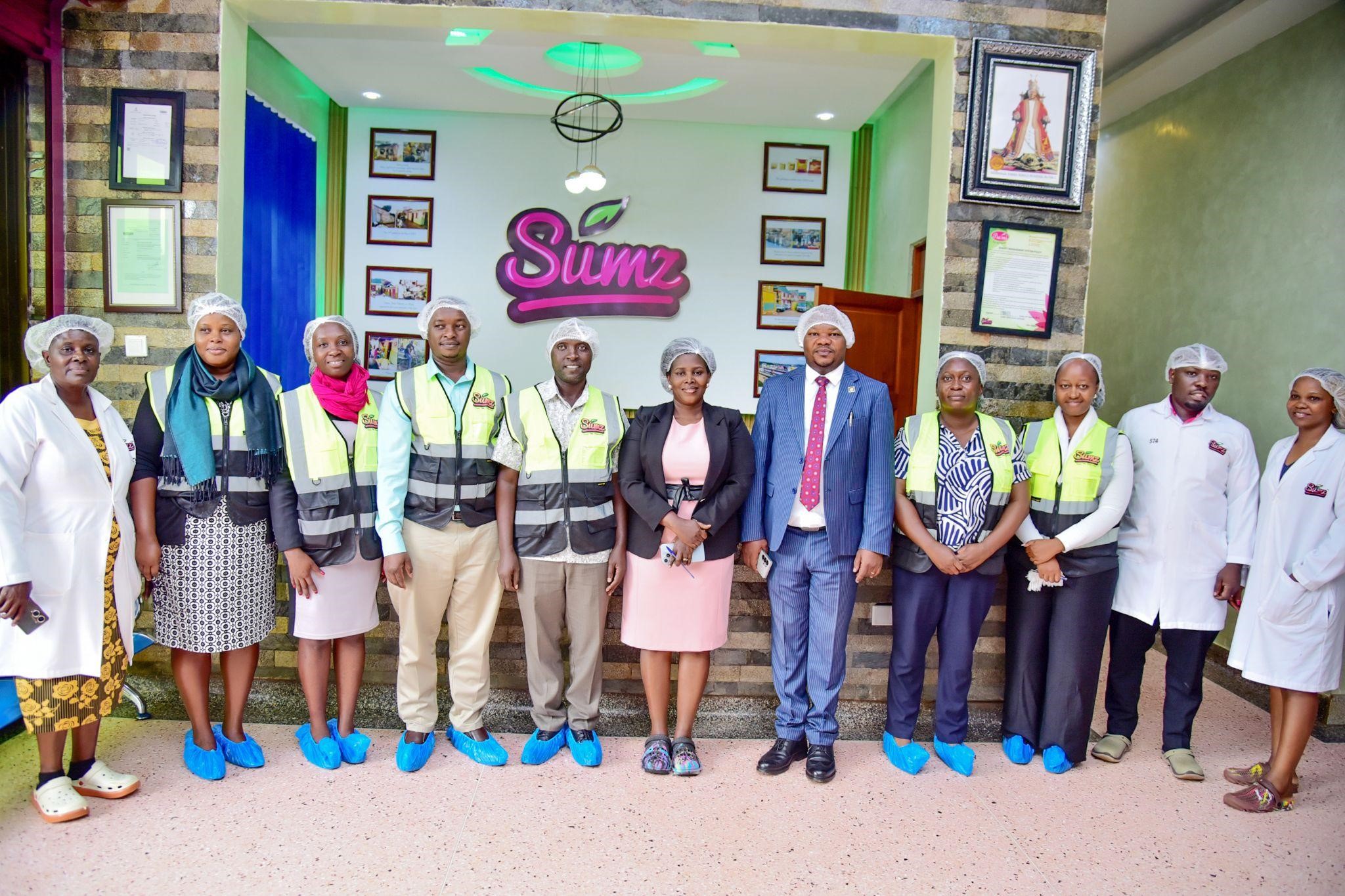
On 2nd March, 2026, representatives from the Advancement Office, the College of Business and Management Sciences and the University Innovation Pod visited Psalms Food Industries to discuss a prospective partnership aimed at strengthening university–industry collaboration in manufacturing, research, innovation, and skills development.
Psalms Food Industries, a homegrown snacks innovation and manufacturing company, operates three major brands, namely, Sumz, Afrikan Harvest and Krunchables, which have grown to a range of 37 products and target the introduction of five new products annually. The company distributes products across Kenya, Rwanda, the Democratic Republic of Congo, South Sudan, and, recently, Tanzania. As a labour of love, the idea of producing snacks was born during the honeymoon of Mr and Mrs Ngabirano, who now run Psalms Food Industries side by side.
Dr. Denis Ngabirano, CEO and Co-Founder of Psalms Food Industries, during the meeting, described the company as “a snacks innovation house, with all our products developed in-house.” He noted.
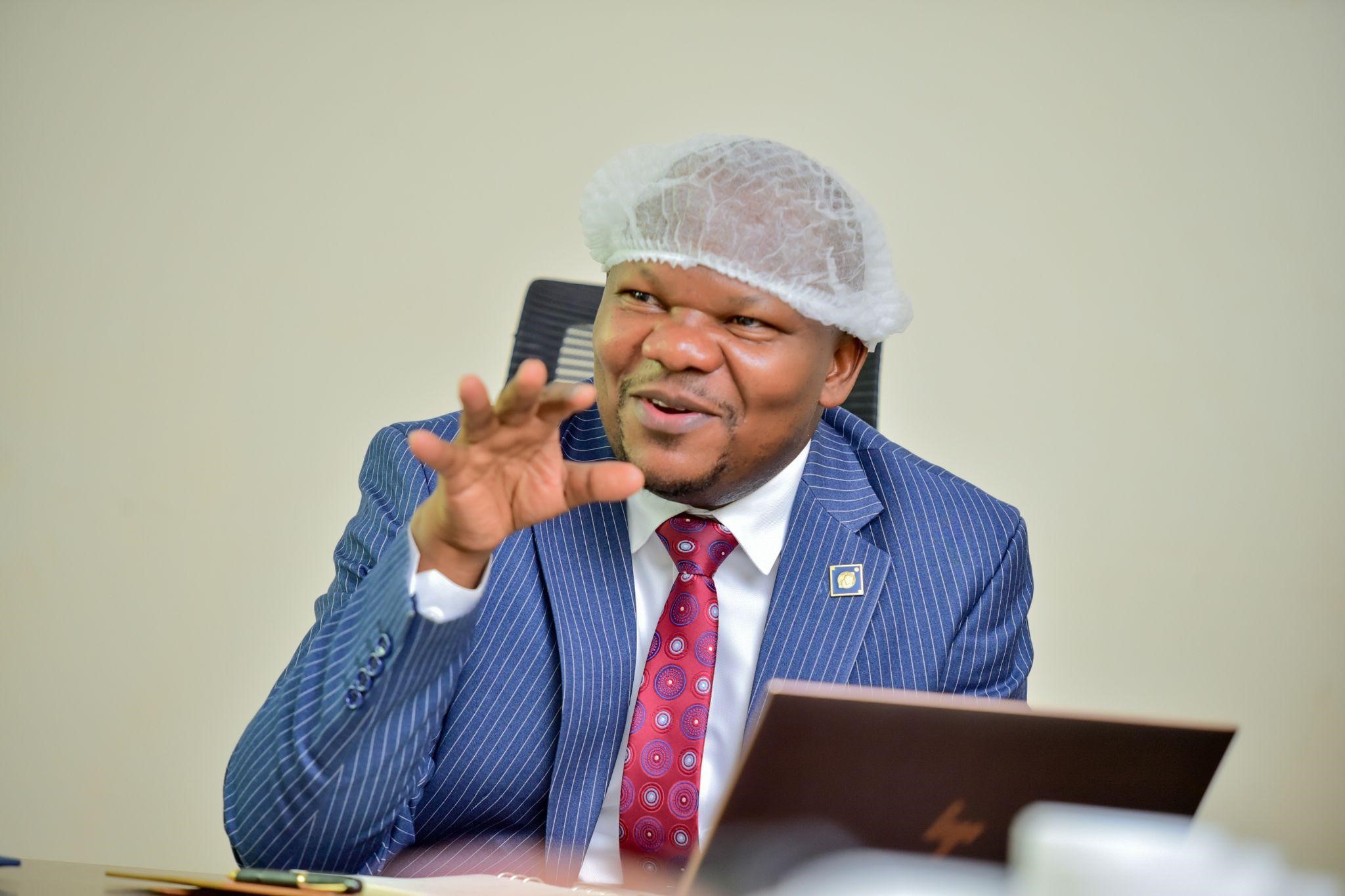
He emphasised the company’s commitment to quality assurance and consumer-centred research, noting that Psalms conducts surveys and gathers customer feedback to inform product development, supported by an internal microbiology and chemistry laboratory.
Dr. Denis Ngabirano noted that the company had only recently introduced two brands, “Afrikan Harvest for it’s health conscious clientele and Kruchables for it’s volume centric clientele.
“Afrikan Harvest has no additives, it is a brand for health-focused consumers,” he explained, while highlighting the differentiated positioning of their product lines. “Sumz is our premium brand, and Krunchables focuses on volume.”
Student-Centered Experiential Learning
A key focus of the meeting was structured experiential learning for students across disciplines. Potential areas of collaboration include internships, graduate trainee pathways, and hands-on exposure within Psalms’ incubation and production facilities.
The proposed engagement spans multiple fields, including environmental sciences, engineering, procurement and logistics, finance and accounting, quality control, production and manufacturing, human resource management, marketing, and international business.
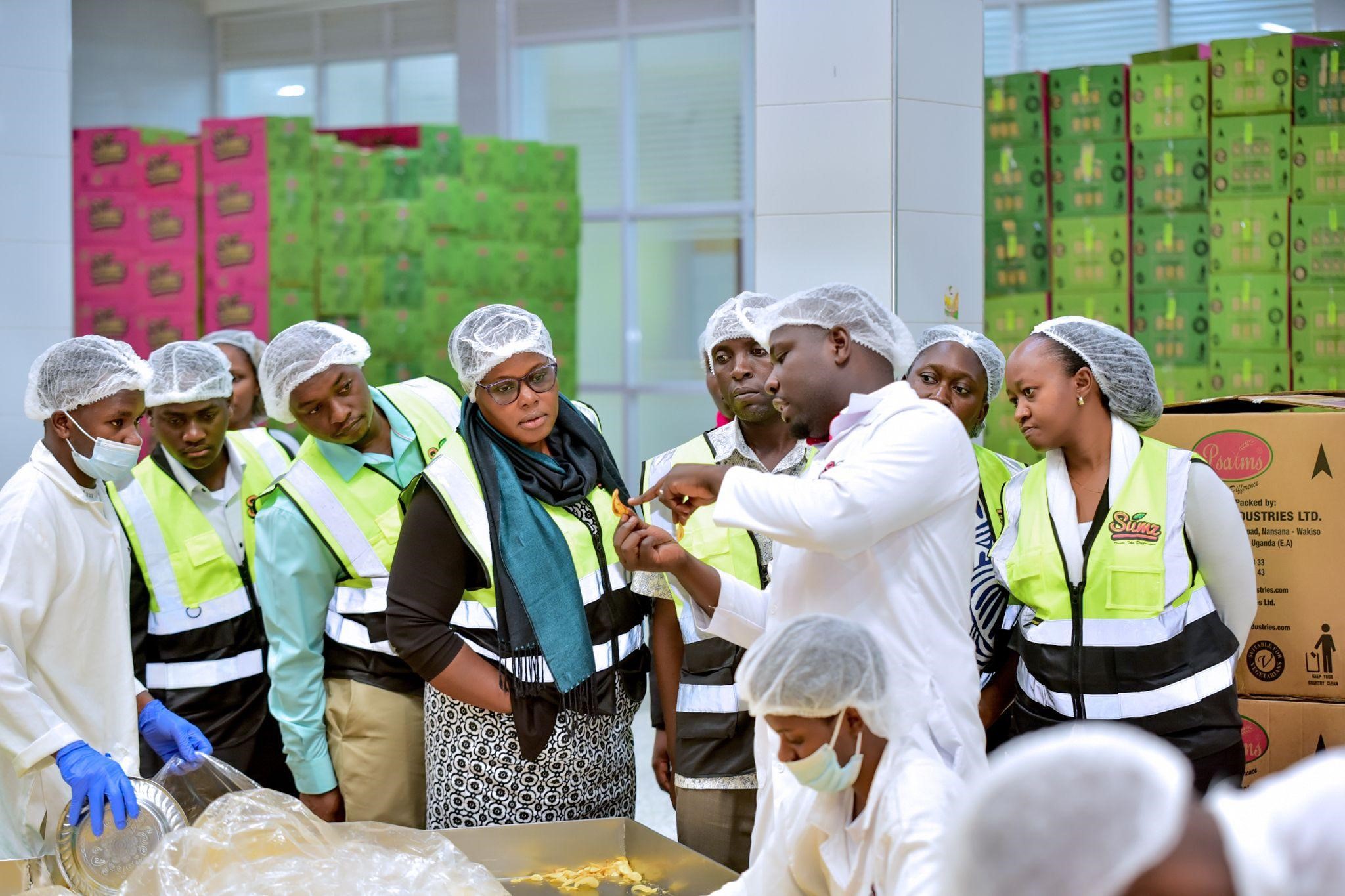
The partnership could provide students with direct exposure to real-time production systems, standard operating procedures (SOPs), and quality assurance frameworks, strengthening the practical relevance of their academic training.
Among the innovative ideas discussed was a potential competition involving students from the Fine Art and Industrial Design disciplines to redesign packaging for selected Sumz products. The proposal would allow top designs to be commercially adopted, creating a direct bridge between creativity, intellectual property development, and industrial application.
Research, Innovation and Commercialisation
Both institutions expressed interest in joint applied research initiatives, particularly in process optimisation, data analytics for manufacturing efficiency, product improvement, and sustainable production systems.
Opportunities were also discussed around collaborative research in machine design, crop development for snack processing, and factory energy solutions, areas that not only benefit Psalms but have broader implications for Uganda’s manufacturing sector.
The engagement further highlighted potential linkages with the University’s innovation and commercialisation structures, including the University Innovation Pod (UNIPOD), to support co-creation and scaling of student-led innovations.
Mr Awel Uwihanganye, Chief Advancement Officer at Makerere University, proposed strengthening the engagement through structured programming, including a planned collaboration between the University’s innovation Hub and the upcoming incubation Hub at Psalms Food Industries, particularly to support the commercialisation of research outcomes for both students and staff.
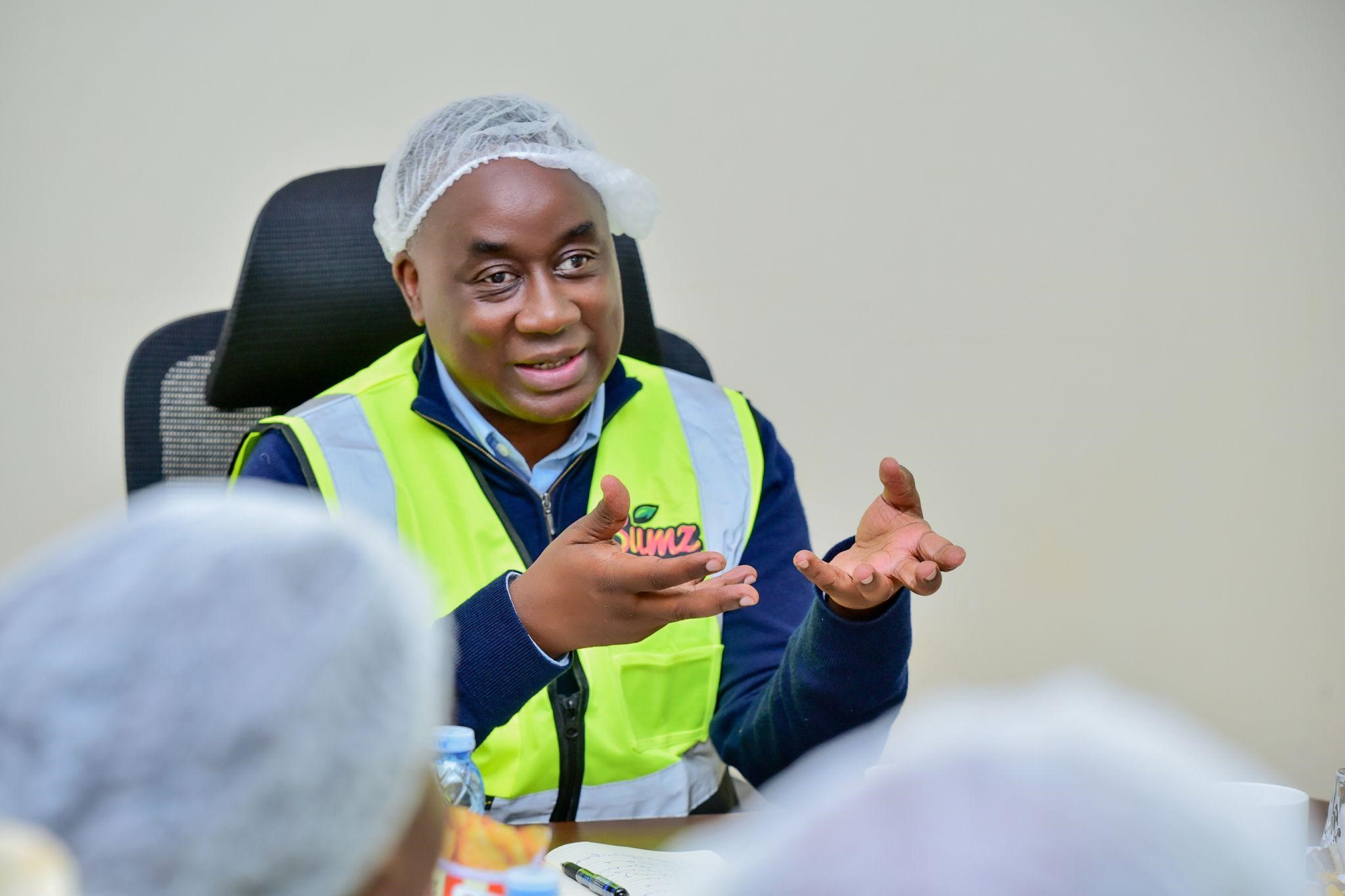
Curriculum Co-Creation and Staff Exchange
Beyond student placements, discussions also focused on co-developing academic content that responds more directly to industry needs, particularly within the manufacturing value chain.
Proposals included guest lectures by industry practitioners, staff exchange programmes to expose academic staff to factory operations, and tailored short courses for Psalms staff based on identified skills gaps.
Dr. Jude Mugarura, Head of the Department of Marketing and Management at COBAMS, emphasised the importance of embedding the partnership within academic programming. He proposed “internships for students in HR, marketing, international business, accounting and finance,” as well as staff exchanges to give University staff hands-on exposure to manufacturing operations.
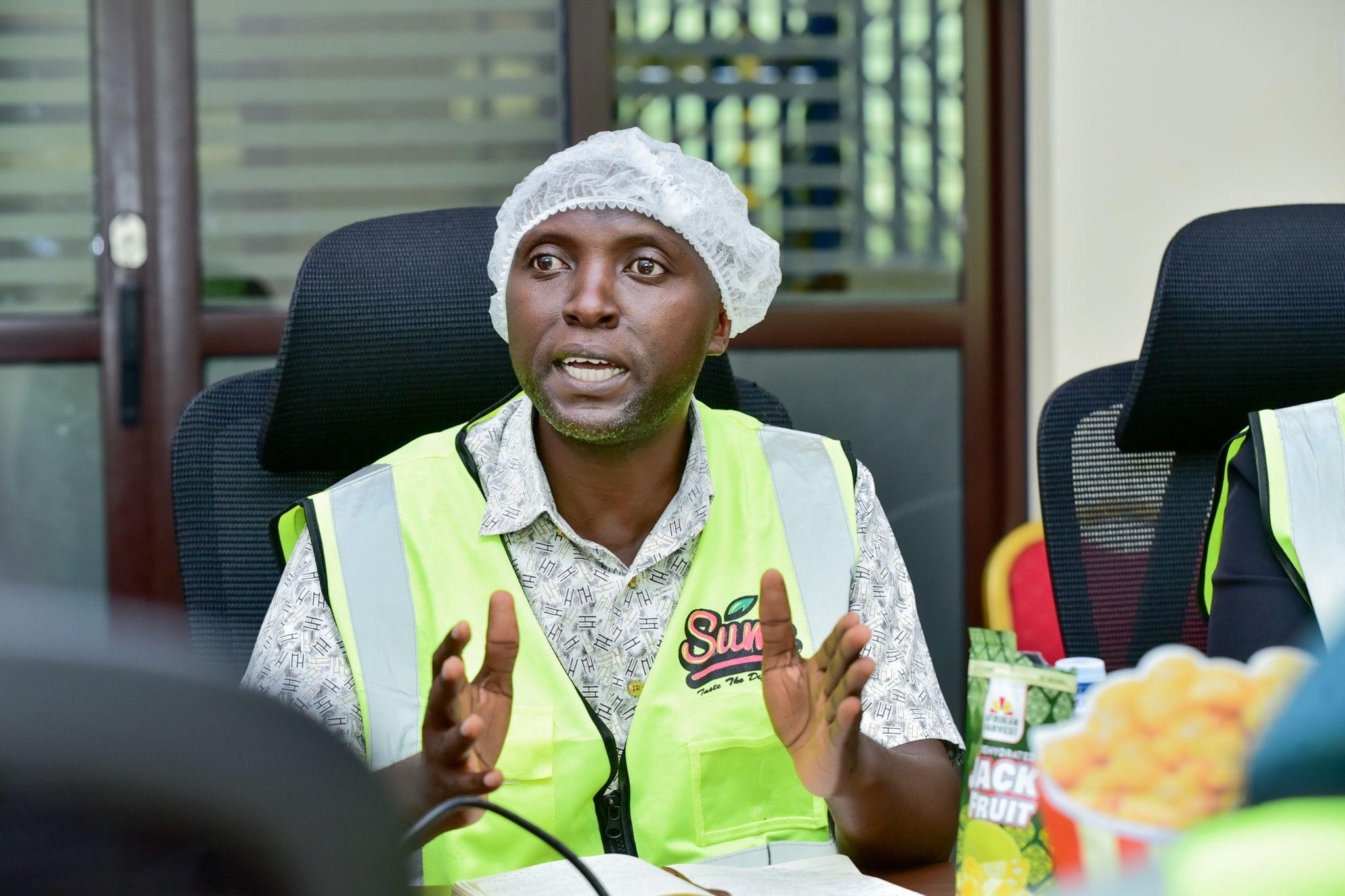
He further suggested specialised courses tailored to the factory’s needs and attachment of research students interested in manufacturing. Such collaboration would contribute to curriculum responsiveness and ensure that graduates are equipped with market-relevant competencies.
Strengthening University–Industry Linkages
The engagement reflects Makerere University’s continued commitment to strengthening partnerships that bridge knowledge generation and real-sector application.
Both institutions expressed a shared vision of building a structured, mutually beneficial collaboration that integrates research, innovation, skills development, and enterprise growth, positioning the University as a key knowledge partner in Uganda’s manufacturing transformation.
Discussions remain ongoing as both parties refine priority areas for formalisation.
Caroline Kainomugisha is the Communications Officer, Advancement Office.
General
Makerere University commemorates 13 transformative years of partnership with Mastercard Foundation
Published
2 days agoon
March 2, 2026
On Friday, 27th February 2026, Makerere University proudly celebrated 13 years of a significant partnership with the Mastercard Foundation, a prestigious independent organisation headquartered in Toronto, Canada. Since its inception in 2013 with the launch of the Scholars Program-currently headed by Prof. Justine Namaalwa, this collaboration has grown significantly, expanding to include two additional initiatives: The E-learning Initiative-headed by Prof. Paul Muyinda Birevu and the Africa Climate Collaborative-headed by Prof. Gorretie Nabanoga. This long-term partnership underscores the shared commitment to fostering education, innovation, and sustainability in Uganda and across Africa.
The colourful event coincided with the 76th Graduation Ceremony, during which Makerere University honoured Ms. Reeta Roy, the Founding President and CEO of the Mastercard Foundation, with an honorary Doctor of Laws.

In her commencement speech, Ms. Roy thanked Makerere University for considering a partnership with the Mastercard Foundation and for conferring upon her a prestigious honorary award.
“Mastercard Foundation is honoured to collaborate with this esteemed university, and I appreciate the recognition through this award. I am excited to be associated with Makerere University and look forward to actively embodying its values. Joining the broader community of alumni from this distinguished institution is a privilege, and I am eager to contribute to its legacy,” stated Ms. Roy.

During the reception in honour of Ms. Roy, the Chairperson of Makerere University Council, Dr. Lorna Magara, acknowledged the invaluable support from the Mastercard Foundation. She emphasised the profound impact of the Foundation’s various initiatives, particularly the scholarships for disadvantaged youth, which enable them to access higher education and opportunities that might have otherwise been beyond their reach.
“On behalf of the Makerere University Council and the broader University community, I extend our sincere gratitude to Mastercard Foundation for its commitment to collaborating with Makerere University in various endeavours, especially for providing scholarships to our underprivileged young people who would never have stepped inside a lecture room at the University.” Dr. Magara stated.

Dr. Magara, in a special way, thanked Ms. Roy for her transformative leadership and unwavering commitment to supporting young people in Africa, citing her efforts to ensure young people get their voices heard.
“As a university, our business is with young people. We are therefore committed to providing the environment and education that deliver meaningful pathways. We will provide an environment that ensures young people have a voice and agency to create meaningful change in society.” Dr. Magara pledged.

Dr. Magara further congratulated Ms. Roy on her honorary Doctor of Laws from Makerere University, noting that it is the university’s highest honour for individuals who have excelled in their careers.
“On behalf of the Makerere University community, I would like to extend my heartfelt congratulations on your honorary Doctor of Laws. This esteemed recognition represents the highest honour our institution can bestow on individuals who have demonstrated exceptional achievement and excellence across various facets of their career.” Dr. Magara remarked.
Prof. Justine Namaalwa, the Program Director of the Mastercard Foundation Scholars Program and the Coordinator for all Mastercard Foundation Initiatives at Makerere University, expressed her appreciation for the thirteen-year collaboration between Makerere University and the Mastercard Foundation. She highlighted that the partnership had yielded significant, impactful results.

“In 2013, Makerere University partnered with the Mastercard Foundation to educate the next generation of transformative African leaders who can positively impact their lives, their communities, and the economies of Africa. The partnership has had a significant impact. I thank the University Management and the Foundation team for this visionary collaboration,” remarked Prof. Namaalwa.
Prof. Namaalwa articulated that the partnership with the Mastercard Foundation is primarily focused on empowering young people as agents of change for transformational leadership in Africa. She presented compelling statistics demonstrating the positive impact of the scholars’ program, highlighting the success of individuals who have completed their education and their subsequent professional experiences after university graduation.

“This partnership focuses on young people, aiming to create positive change in their lives. To date, the Scholars Program has graduated 974 alumni, with 48% securing formal employment, 18% starting their own businesses, 8% participating in internships, and 5% pursuing further education. Overall, 72% of Scholar alumni are actively engaged in employment or entrepreneurship,” Prof. Namaalwa stated.
The colourful event showcased a dynamic array of activities that highlighted the entrepreneurial spirit of Scholars and alumni from the Mastercard Foundation at Makerere University. Attendees enjoyed a mini-exhibition featuring innovative products from these ventures.

A video documentary illustrated the positive impact of the three Mastercard Foundation initiatives. The event also featured inspiring poetry recitations by Scholars and a lively atmosphere of music and dance, creating an engaging and memorable experience for all participants.
The high-level event was attended by senior University officials, led by the Chairperson of Council, Dr. Lorna Magara; the Vice-Chancellor, Prof. Barnabas Nawangwe; the Vice-Chancellor, Academic Affairs, Prof. Sarah Ssali, Deputy, and the Ag. Deputy Vice-Chancellor, Finance and Administration Prof. Winston Tumps Ireeta. Mr Yusuf Kiranda, the University Secretary; and Prof. Buyinza Mukadasi, the Academic Registrar, Chancellor Emeritus-Prof. Ezra Suruma, former Chairperson of the Steering Committee of Mastercard Foundation Scholars Program-Prof. Umar Kakumba, and the Deputy Executive Secretary, RUFORUM, and former Program Coordinator of the Scholars Program at Makerere University-Dr. Florence Nakayiwa, among many other officials graced the function.

The event was also graced by a high-level delegation from the Mastercard Foundation, led by Ms. Reeta Roy, the Founding President of the Foundation, and included the Mastercard Foundation Teams from the Country offices in Kigali, Nairobi, and Kampala; the Program partners; the Mentors, Scholars and alumni; as well as the Program staff of the three Mastercard Foundation Initiatives at Makerere University.
At the end of the event, Makerere University honoured Ms. Reeta Roy with University memorabilia, including a pencil-drawn portrait, a pencil-drawn photo of the Ivory Tower, and other Ugandan crafts. Ms. Roy cut a graduation cake together with the 10 graduates of the 76th graduation ceremony from the Mastercard Foundation Scholars Program.
Bernard Buteera is the Principal Public Relations Officer for the Mastercard Foundation Scholars Program at Makerere University.

It is with great pleasure that I welcome you to this edition of Mak News Magazine, a publication that continues to chronicle Makerere University’s journey as a centre of academic excellence, innovation, and societal transformation.
The stories featured in this issue vividly demonstrate Makerere’s unwavering commitment to addressing national, regional, and global challenges through research, partnerships, and people-centred solutions. They reflect a university that is deeply engaged with society, one that applies knowledge not only to advance scholarship, but also to improve lives.
A recurring theme in this edition is innovation for resilience and inclusion. From the College of Agricultural and Environmental Sciences’ Healthy Soy Initiative combating child malnutrition amid climate change, to the cutting-edge work of CEDAT’s Team Green Minds integrating IoT into agriculture, Makerere continues to harness science and technology to respond to pressing development needs. Equally inspiring is the College of Natural Sciences’ success in securing international funding to scale up fish processing technologies, with a deliberate focus on empowering women and strengthening livelihoods.
This issue also highlights Makerere’s growing role in advancing health and wellbeing. The launch of the Early Intervention Psychiatry Services Clinic at Makerere University Hospital marks an important step in strengthening mental health services, while the Hospital’s transformation from a modest sickbay into a centre of excellence stands as a testament to decades of strategic investment, dedication, and service to the nation.
Our commitment to education access and global engagement is equally evident. Strategic partnerships, such as that between the College of Education and External Studies and the Uganda Vocational and Technical Assessment Board, are expanding pathways to quality education. The establishment of the first-ever United States Studies Centre in the Great Lakes Region positions Makerere as a hub for dialogue, research, and policy engagement on global affairs. We also celebrate our vibrant international community, with graduates drawn from 67 nationalities—affirming Makerere’s status as a truly global university.
This edition further showcases initiatives that ensure long-term institutional sustainability, including the launch of the CoCIS Endowment Fund, infrastructure developments such as the modern hostel at Buyana Farm, and transformative programmes supported by the Mastercard Foundation that continue to empower young people across the continent.
As you read through these pages, I invite you to reflect on the collective effort of our students, staff, alumni, partners, and supporters whose contributions make these achievements possible. Together, we continue to shape Makerere University as a place where knowledge serves humanity.
I wish you an engaging and inspiring read.
Prof. Barnabas Nawangwe
VICE CHANCELLOR
Trending
-

 Humanities & Social Sciences1 week ago
Humanities & Social Sciences1 week agoMeet Najjuka Whitney, The Girl Who Missed Law and Found Her Voice
-

 General1 week ago
General1 week ago76th Graduation Highlights
-

 Agriculture & Environment2 weeks ago
Agriculture & Environment2 weeks agoUganda Martyrs Namugongo Students Turn Organic Waste into Soap in an Innovative School Project on Sustainable Waste Management
-

 Health2 weeks ago
Health2 weeks agoMakerere University School of Public Health Graduates First Cohort of Cost-Effectiveness Analysis Short Course
-

 Agriculture & Environment1 week ago
Agriculture & Environment1 week agoCAES Presents Overall Best Performing Student in the Sciences & a Record 28 PhDs at the 76th Graduation Ceremony
